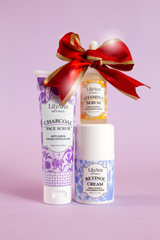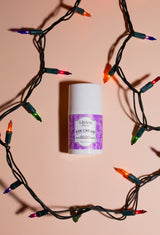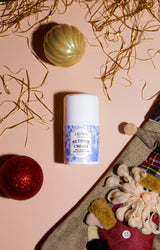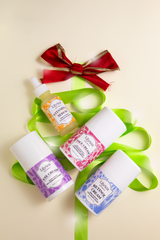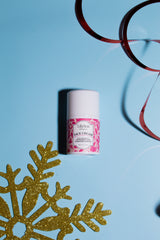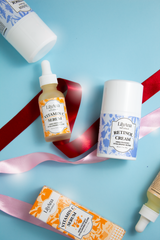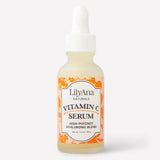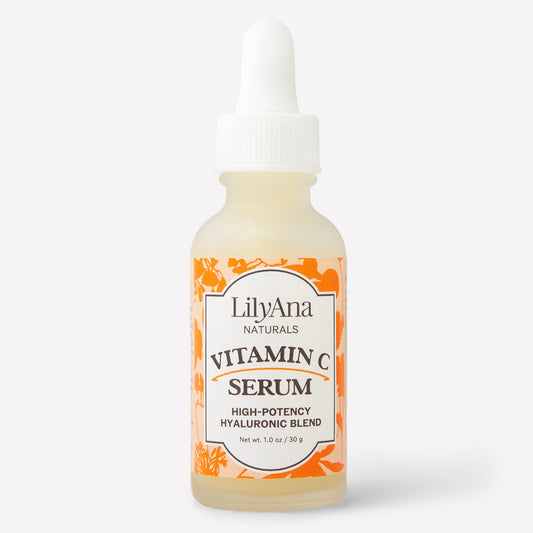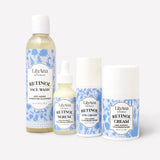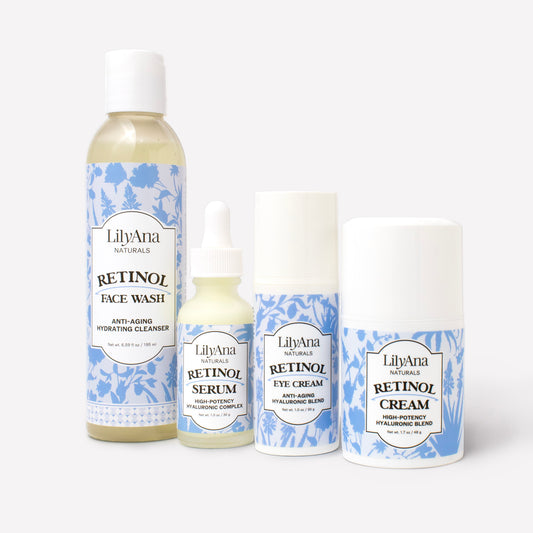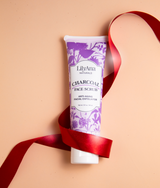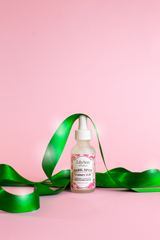Face masks are a quick and easy method to treat all kinds of acne, whether it's a stress breakout or a persistent acne problem. Furthermore, treating acne using a mask for the odd pimple may decrease inflammation and kill germs without wreaking havoc on other parts of the face that are not afflicted.
Acne combating masks may help prevent outbreaks while also balancing oil production. Masks may also be an intriguing way to vary your routine, offer some variety, and help you relax when combined with a good bath or a book. While there are numerous mask products on the market, it may be challenging to choose a suitable mask for your specific skin problem.
You may even need several face masks to treat different parts of your face at other times. Instead, you may create your at-home face masks for a fraction of the cost using easily accessible materials.
What Exactly are Face Masks?
Face masks are a popular face care solution because of their many exfoliating advantages, but they are used to preserve, restore, and enhance the skin at their heart. In general, the mask rests on your face for a certain length of time while it works its magic on your skin.

An infinite number of masks are available, but most include healing elements such as clay, mud, aloe vera, essential oils, and herbs. You may add the product of your choice to your at-home beauty regimen by purchasing it over-the-counter (OTC), or you can have a professional-grade mask applied by an esthetician during a facial.
A handful of skincare enthusiasts like using a vegan face mask since they are usually designed with acne-fighting components that may help draw out impurities, decrease pore size, and moisturize the skin without the use of harmful or harsh chemicals.
Face Masks of Various Types
If you're thinking, "Are face masks helpful for acne?" you may be concerned about the myths surrounding their pore-clogging qualities. The advantages – and repercussions – of face masks, like any other cosmetic product, are determined by the quality of their components. Choosing a face mask may be complicated with so many variations in formula and texture. Among the many possibilities are:
- Clay masks: These include clay, kaolin, and bentonite, tightening and sebum-absorbing properties. Such masks are intended to attract oil and debris to the skin's surface.
- Cream or gel masks: These masks are often intended to provide a burst of hydration to dry or dehydrated skin while healing free radical damage and increasing collagen synthesis.
- Exfoliating masks: Exfoliation is an essential step in skincare, and these relaxing masks are intended to balance out skin tone and texture by sloughing off dead skin cells. You can use a coconut face mask for exfoliated and bright skin, including refined coconut shell grains and fruit ingredients.
- Enzyme masks: Natural fruit enzymes are excellent for healing dull or irritated skin without causing discomfort.
- Peel-off masks: Also known as rubber masks, these putty-like concoctions solidify after application and are removed by peeling.
- Sheet masks: Sheet masks, also known as cloth masks, are popular in the Asian beauty industry and provide high concentrations of active ingredients to the skin, pushing them deeper into the dermis for even more significant effects.
- Overnight masks: Most leave-on covers come in the shape of gel or cream. They operate as you sleep, allowing you to wake up with glowing skin.
-
Natural masks: The internet is full of DIY face mask ideas that use natural substances like sugar, oats, and honey. A great example is our Lavender Face Mask which can treat your skin without using harmful, artificial substances.

From here, we will be focusing on naturally-made face masks that you can make at home, as long as you have the necessary ingredients prepared or stocked in the pantry. So let us go into them.
Lavender Face Mask: The Best Acne Face Mask
This face mask type is, by far, our best pick for the most effective homemade face mask to beat your pesky acne. To make one, you must have the following components:
- Raw honey (preferably Manuka honey)
- Lavender oil
- Tea tree or melaleuca oil (optional)
Follow these steps to create your lavender face mask:
- In a small bowl, combine one tablespoon raw honey and three drops of lavender oil (for an extra acne-fighting boost, add one drop of Tea Tree/Melaleuca oil).
- Stir well to combine—smooth mixture over a clean, damp face and neck.
- Remove gently with a warm, wet washcloth.
- Apply
What Makes Lavender Face Mask So Special
This lovely purple flower is renowned for its relaxing and mind-calming properties, but it also offers a slew of skin advantages apart from its incredible fragrance. It is famous for its anti-inflammatory, antioxidant, and antibacterial qualities as a solid botanical component, and a lavender face mask may assist in preserving, repairing, and enhancing your skin's natural barrier.
When your skin is congested or dull, and you don't feel like your best self, a lavender face mask may calm and cleanse both your skin and your mind. In addition, self-care in the form of face masks and other leisurely skincare regimens may do wonders for your mental health. It enables you to prioritize yourself, care for your skin, and feel refreshed and revitalized without feeling rushed or judged.
Natural lavender face masks offer several distinct advantages over other types of face masks. Continue reading to learn more about the benefits of applying lavender to your skin.
Lavender Oil: The Essence of Greatness
The lavender oil is made from steam-distilled leaves and blooming tops; it is a natural component with no synthetic scent. While lavender is famous for its calming fragrance, it also offers many skincare advantages. Lavender has been used for almost 2,500 years by various civilizations, including the ancient Persians, Romans, and Greeks.
They used it as their bathwater to cleanse, purify, soften, and soothe their skin. Lavender has a lovely fragrance and maybe highly soothing to the nerves. In addition to using lavender in your face masks, you may also place a few drops of lavender essential oil on your pillow to help you sleep.
Instant Skin Purifier
Consider including a lavender face mask into your skincare regimen if you have acne-prone skin. Lavender oil's antibacterial qualities may aid in the killing of germs on your skin. As a consequence, it can help unclog your pores, as well as relieve skin irritation and acne outbreaks.
Lavender essential oil is high in antioxidants, and it helps preserve and enhance the skin's natural barrier. It may help pull out toxins and regulate pH levels in a face mask for the ultimate skin detox. If you have eczema on your face, you may notice that your skin is dry and scaly.
Lavender oil's antifungal qualities may aid to soothe your skin and decrease irritation. Lavender in a soothing face mask is suitable for all skin types and helps treat acne, dermatitis, eczema, and psoriasis.
Source of Aromatherapy
Your skincare regimen should be a pleasant portion of your day when you can massage nutritious products into your skin and feel rejuvenated at the end. In addition, natural lavender aromatherapy advantages may help you feel peaceful and decrease emotions of tension and worry.
Because lavender tends to soothe and relax, using a natural face mask with lavender oil provides additional aromatherapy advantages in boosting your mood.
Other Recipes for Homemade Acne Face Masks
Apart from lavender face masks that we recommend using for fighting acne, we've compiled six more recipes that use simple ingredients, some of which you may already have on hand.
Turmeric Acne Treatment Mask
Turmeric face masks are naturally antiseptic, antibacterial, and anti-inflammatory, making them excellent for calming irritated acne skin. You need to have the following components to create this mask:
- Apple cider vinegar (organic)
- 1/2 teaspoon turmeric powder (organic)
- 1 tbsp of organic raw honey (preferably Manuka honey)
- Milk

Swipe vinegar all over your skin with a cotton ball. Wait approximately five minutes before applying the mask after mixing the turmeric powder with the honey. Then, use the cover with clean hands, avoiding the eye region. Allow the mask to remain for 15–20 minutes before rinsing with warm water.
If the turmeric powder leaves a yellowish tinge on your skin, go over discoloured areas with a milk-soaked cotton ball. This mask is recommended to be worn twice a week.
Spot Treatment Mask with Avocado and Lemon
Avocado promotes collagen synthesis, which helps in cell repair. Avocados are also high in anti-inflammatory, moisturizing lipids that do not clog pores. Honey has antimicrobialzproperties, while lemon juice lightens hyperpigmentation. Here are the main components in creating the avocado lemon mask:
- One avocado, ripe
- 1 tbsp fresh honey
- A quarter of a lemon
Mash one ripe avocado until smooth, then stir in 1 tablespoon honey and half a lemon. Thoroughly combine the ingredients and apply them as a spot treatment or to broader acne-prone areas. If you have sensitive skin, use less lemon or leave it out entirely. Set aside for 5–10 minutes.
When using lemon juice, keep in mind that although it has lightening and brightening properties, it may also make the skin photosensitive. Due to the photosensitivity of lemon, apply at night only, rinse your face well afterwards, and be prepared to wear a zinc oxide 30+ SPF sunscreen the following day if you'll be out in the sun.
Face Mask with Honey and Baking Soda
For a simple, efficient acne-fighting face mask, combine anti-inflammatory baking soda, exfoliating lemon juice, and soothing honey. Here are the ingredients in creating your honey and baking soda face mask:
- One teaspoon lemon juice
- One teaspoon honey
- 1 tsp. baking soda
In a small dish, combine the lemon juice, honey, and baking soda. Apply evenly to the face and neck. Avoid the region around your eyes (lemon juice and honey will both sting). Don't massage it into your skin to make it become a scrub.
Remove the mask with warm water after 15 minutes, then rinse with cold water. Because lemon causes photosensitivity in the skin, use this mask in the evening as described after the first recipe. Always wear decent sunscreen before going out the following day.
Face Mask with Apple Cider Vinegar and Clay
Clay pulls impurities from the pores, while apple cider vinegar's natural acids treat acne by gently sloughing away dead skin cells. To make your apple cider vinegar and clay face mask, have these ingredients:
- 1 tbsp. bentonite clay
- One pill probiotic
- 2 tbsp. unpasteurized apple cider vinegar
In a small dish, combine clay and probiotic powder. Make a paste with the ACV. It's OK to add extra if necessary to get a smooth, spreadable consistency. Spread on your face with clean fingertips and leave for 15 minutes. After rinsing with cold water, apply moisturizer.
Aloe and Charcoal Face Mask
Charcoal absorbs excess oil, while aloe is calming and anti-inflammatory, making it an excellent addition to any acne mask. To create your aloe and charcoal face mask, you must have the following:
- One tablespoon charcoal (activated)
- 1 tbsp. aloe vera gel
- In addition, one drop of tea tree essential oil
In a small dish, combine all of the ingredients and mix with your finger before applying to the skin. Work the charcoal mixture over your face in circular movements for 1 minute, then leave the mask on for 10–15 minutes. Thoroughly rinse with warm water.
Face Mask with Garlic and Milk
Garlic prevents blocked pores, kills acne-causing germs, and soothes irritation. However, garlic may hurt when applied straight to the skin, diluting it first with water, jojoba oil, or aloe vera.
Jojoba moisturizes without blocking pores while whole milk's lactic acid gently exfoliates. It's easy to create your face mask from garlic and milk. Just prepare the following ingredients:
- One garlic clove smashed and coarsely minced
- 1 tsp. jojoba oil
- 2 tbsp whole milk (can also use honey or aloe vera)
In a small bowl, combine the garlic and jojoba oil. Then, gradually add the milk (or honey or aloe) until the mixture is smooth. Wear the mask for 5–10 minutes before rinsing with warm water to gently exfoliate the skin.
Wrapping Up
Acne-reducing face masks may be beneficial for blemish management and complexion cleansing. After only one application of LilyAna's Lavender Face Mask, your skin will feel tightened and toned. Furthermore, acne face masks aid in removing excess oil, reducing pore size, and extract pollutants from the skin.
They're simple to use, enjoyable to use, and effective. Choose from gels and creams, imported sheets, and overnight treatments to discover a product that will nurture your skin. The efficacy of your mask is determined not only by its texture but also by the substances it contains.
When you want to pamper your skin, use a face mask to treat acne - they feel lovely and may help you look fantastic! If you want to know more about the best face masks for your acne, as well as everything skin care-related, be sure to check out the best lavender face mask for an all-new you!
